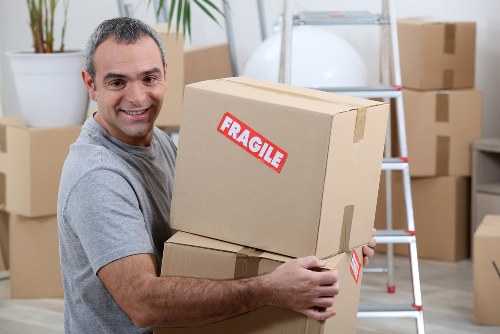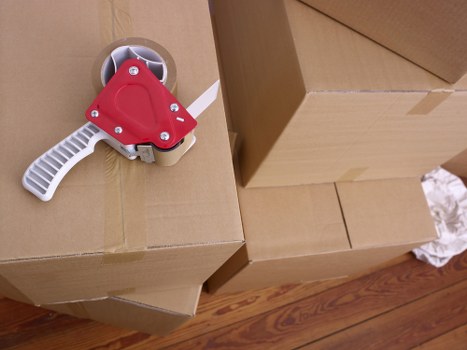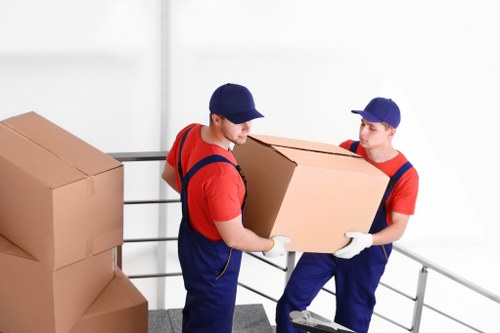Comprehensive Guide to Council Waste Collection in St Albans

Managing household waste effectively is essential for maintaining a clean and healthy community. In St Albans, the council provides a robust waste collection service designed to keep the city tidy and environmentally friendly. Understanding how this system works can help residents participate actively in keeping their surroundings clean.
The St Albans Council Waste Collection service includes regular pickups of general waste, recycling, and bulky waste. Each type of waste has specific guidelines to ensure proper disposal and recycling. This article delves into the details of the waste collection process, schedules, recycling initiatives, and how residents can contribute to a greener St Albans.
One of the key aspects of the waste collection service is the categorization of waste. By separating waste into different categories, the council can process and recycle materials more efficiently, reducing the overall environmental impact. Proper waste segregation not only aids in recycling but also minimizes the amount of waste sent to landfills.

Types of Waste Collection Services
The St Albans Council offers several types of waste collection services to cater to the diverse needs of its residents. These services ensure that waste is collected regularly and disposed of responsibly.
General Waste Collection
General waste includes items that cannot be recycled, such as food waste, diapers, and other non-recyclable materials. This waste is collected weekly, and residents are encouraged to place their bins out on the designated collection days.
Recycling Collection
Recycling is a critical component of the waste management strategy in St Albans. Residents are provided with separate recycling bins for paper, plastic, glass, and metal. Proper sorting of recyclable materials ensures that more waste is diverted from landfills and reused in the manufacturing process.
Bulky Waste Collection
Bulky waste refers to large items that cannot be disposed of through regular waste collection, such as furniture, appliances, and garden waste. The council offers scheduled bulky waste pickups, allowing residents to request collection when needed.
Understanding the different types of waste collected helps residents manage their waste more effectively and adhere to the council’s guidelines.
Participation in recycling programs not only benefits the environment but also fosters a sense of community responsibility among residents.

Waste Collection Schedule
St Albans Council has established a clear and consistent waste collection schedule to ensure that waste is removed promptly and efficiently. Adhering to this schedule helps prevent overflowing bins and keeps neighborhoods clean.
Weekly Collection Days
The council assigns specific collection days for general waste and recycling in different areas of St Albans. Residents can find their designated collection day by checking the council’s website or their household waste collection notice.
Bulky Waste Collection Appointments
For bulky waste items, residents need to book an appointment with the council. This can be done online or by contacting the council’s waste management department. Scheduling ensures that bulky items are collected without disrupting regular waste services.
Holiday and Adverse Weather Schedule Adjustments
During public holidays or adverse weather conditions, the waste collection schedule may be adjusted. The council notifies residents in advance about any changes, ensuring that waste collection remains reliable even during unforeseen circumstances.
Staying informed about the waste collection schedule helps residents plan their waste disposal accordingly, minimizing inconvenience.
Residents should mark their calendars with collection days and set reminders to ensure that waste is placed out on the correct days.

Recycling Initiatives and Programs
The council is committed to promoting recycling and reducing landfill waste through various initiatives and programs. These efforts aim to create a sustainable environment and encourage residents to adopt eco-friendly practices.
Single-Stream Recycling
St Albans employs a single-stream recycling system where all recyclable materials are placed in one bin. This simplifies the recycling process for residents, making it easier to participate without the need for extensive sorting.
Composting Programs
Organic waste, such as food scraps and garden waste, can be composted to create nutrient-rich soil for gardening. The council provides compost bins and offers workshops on how to compost effectively at home.
Educational Campaigns
To increase awareness about the importance of recycling, the council runs educational campaigns. These campaigns inform residents about what can be recycled, how to sort waste, and the environmental benefits of recycling.
Participation in recycling programs not only helps the environment but also supports the council’s goals for waste reduction and sustainability.
By engaging in these initiatives, residents contribute to a cleaner and greener St Albans.

Tips for Effective Waste Management at Home
Managing waste effectively at home plays a crucial role in the overall waste collection system. By adopting simple practices, residents can make a significant impact on waste reduction.
Reduce, Reuse, Recycle
The three Rs—Reduce, Reuse, Recycle—are fundamental principles of waste management. Reducing the amount of waste generated, reusing items whenever possible, and recycling materials can greatly diminish the overall waste burden.
Proper Sorting of Waste
Accurate sorting of waste ensures that recyclable and compostable materials are processed correctly. Residents should familiarize themselves with the council’s recycling guidelines to avoid contamination of recyclable streams.
Minimize Single-Use Items
Using reusable bags, bottles, and containers reduces the amount of single-use plastics that end up in the waste stream. Small changes in daily habits can lead to substantial waste reductions.
Implementing these tips not only supports the council’s waste management efforts but also promotes a sustainable lifestyle.
Effective waste management at home contributes to the overall cleanliness and environmental health of St Albans.
Local Relevance: Areas Surrounding St Albans
- Harpenden - Located just north of St Albans, Harpenden benefits from the same efficient waste collection services, ensuring seamless waste management across both towns.
- Wheathampstead - This picturesque village enjoys regular waste collection, with special provisions for its rural areas to handle both general and bulky waste.
- Redbourn - Situated to the southeast, Redbourn adheres to St Albans’ waste collection schedules, promoting recycling and responsible waste disposal.
- St Stephen - As one of the central areas, St Stephen has access to comprehensive waste services, including frequent recycling pickups and community recycling centers.
- St Michael - Neighboring St Albans, St Michael benefits from timely waste collection, aiding in maintaining the area’s cleanliness.
- St John - This area receives dedicated waste collection services, ensuring that both residential and commercial waste are managed efficiently.
- Wards Mill Park - With its large parks and green spaces, Wards Mill Park has specialized waste collection to handle organic and park waste effectively.
- London Colney - Located to the west, London Colney follows the St Albans waste collection protocols, supporting the region’s recycling initiatives.
- Bedmond - This suburban area enjoys regular waste pickups, with additional services for holiday seasons to manage increased waste.
- Sandridge - Sandridge benefits from the council’s bulk waste collection service, making the disposal of large items hassle-free.
- St Albans Park - An area known for its vibrant community, St Albans Park has community recycling points and frequent waste collections.
- Park Street - Park Street residents can easily access waste collection services, including special pickups for bulky items.
- Marshalswick - Close to St Albans, Marshalswick adheres to the same waste collection schedules, ensuring consistency across the region.
- New Palling - This area benefits from the council’s efficient waste services, with an emphasis on recycling and waste reduction.
- Marlborough Road - Marlborough Road residents have convenient access to waste collection services, supporting a clean and sustainable community.
FAQs
1. How do I find out my waste collection day in St Albans?
You can find your designated waste collection day by visiting the St Albans Council website and entering your postcode. Alternatively, check the household waste collection notice provided by the council.
2. What items are collected during bulky waste pickup?
Bulky waste pickup includes large household items such as furniture, appliances, garden equipment, and other items that cannot fit in regular waste bins. It’s recommended to book an appointment through the council’s service portal.
3. How can I request an extra recycling bin?
If you need an additional recycling bin, contact the St Albans Council’s waste management department through their website or customer service hotline. They will provide information on availability and any associated costs.
4. What should I do with hazardous waste in St Albans?
Hazardous waste, such as chemicals, batteries, and electronics, should not be placed in regular waste bins. The council organizes special collection events for hazardous materials, or you can take them to designated recycling centers.
5. Are there any fines for improper waste disposal in St Albans?
Yes, improper waste disposal can result in fines. It’s important to follow the council’s waste collection guidelines to avoid penalties and contribute to a cleaner environment.